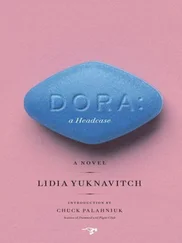I can see all of him. Trinculo is a pilot of the highest pedigree and expertise. More than that, he is an engineer, as well as an inventor and illustrator whose talents far exceed those of anyone around him. At times people regard him as mad—until his ideas are put to the test, and voilà! His genius is confirmed again. And yet, over the years, his antics have overtaken his contributions to culture, even though his mind is keener than a Da Vinci or Hawking, historically.
The line between genius and madness has always been as thin as an epidermal layer. The truth is Trinculo designed and engineered CIEL, this floating death house. And, though only he and I know it, he still has the knowledge to redirect its aims.
He deactivates his machine. For a moment, I have to admit, it feels like all hope and joy has left the room. “Sit down like a man? Never! As a genital entrepreneur, however, I’d be delighted to talk with you,” he answers. “Besides, I have news.” He sits and crosses his legs as if he’s the most normal person in the world.
“Genital entrepreneur, is it?” I say, lowering my voice. We don’t have long before he’ll have to go.
“At your service. If you will only open your imagination. And your legs.”
“You know as well as I do there’s next to nothing left between my legs. Or yours.” The sentence makes a funeral in the room. Our whole lives and losses reduced to a farce. Comedy and tragedy lock in a kiss.
“All the more reason to climb aboard, my skittish little dreamer. You can be the first astronaut,” he says playfully. His voice and words make my whole body ring. He makes me laugh. Sometimes I think that’s the deepest love of all.
“Trinc,” I say stoically. “We’ve been out here for years and years.” I turn to study the nothingness out the window. My eye falls on the spider making its way back to its perch. I think about the pull of the dead sun and our useless bodies and about what an ironic joke stars are: dead stuff that tricks you into believing in magical light.
“Did you not hear me?” Trinc says, settling himself more carefully into a chair like a human toolbox. “I said I have news.”
“What gossip have you been gathering tonight?” I suddenly feel the need for a drink. “Cognac?” I offer. “I’ve got about a case and a half of real Courvoisier left—then it’s all synthetics, dull as everything else around here—no sign of flesh and blood…” I gesture to my colorless grafted body, letting my robe fall open. Modesty left the arena long ago. Besides, Trinc is the only thing left of the word love in my body. He is one of the few people I will share my work with before unveiling it to the public.
Trinc bolts from his seat, his second, mechanical self clamoring around him like a fanfare. “What is that?” he says breathlessly, pointing to my latest self-publishing efforts. “Your breasts…”
I look down at my still raw work. “Used-to-be breasts,” I correct him. “Who knew that what once gave life would make such a lovely canvas? But, listen, Trinc, wait until I’ve completed this manuscript,” I say, closing my robe. “It’ll be worth it, I promise.”
“Not even a peek?”
“Not even.” I walk over to my dwindling cache of alcohol, root around like an archaeologist, and retrieve the familiar bottle in its velvet pouch. I scan the room for glasses to drink from, then decide that tonight can be a share-the-bottle night. Something about the work, still stinging on my flesh, something about Trinc’s pseudolascivious new contraption—it was all making me melancholy and death-conscious. Yet I like it—that feeling that we should pay attention to tiny moments, since the world can change faster than the strum of a spider’s webstring, and that maybe, just maybe, our last act could still be a good angry fuck.
“What news?” I say, opening the bottle and filling my throat. We don’t have much time, after all; I can hear the sentries already, making their curfew rounds a floor below us. The liquid travels down my throat in a heatwet. I close my eyes. I hear Trinc breathing. For a nanosecond, I feel the story I have grafted rising up from my body like a third person in the room with us. Then he turns his ridiculous machine back on, as a wild cacophony fills the room. “Are you insane?” I hissed. “They’ll put you away again.”
But there he is, stubbornly human, in front of me again, nearly taking flight, laughing his motherloving ass off. For a moment he looks like a boy. His eyebrows raised. His cheeks flush. His smile threatens to overtake his face. Like the girls and boys we all were, once, on a planet orbiting the sun.
“Relax, before you go all onion-eyed!” he yells at me. “You tickle-brained harlot!”
And here I burst into laughter—how can I help it, with this absurdity whirring around me like a giant bad moth experiment? I spit out my mouthful of drink. We’ll probably both get solitary.
“We’ll not be moldwarp tonight!” he purrs. “Mount the table and spread your legs, Christine. I’ll bore a new hole into your luscious otherworldly flesh.”
I follow his commands. The game of heterosexual desire that will never consummate cleaves my mind. My heart a dumb lump beating my chest up. And yet it feels good to not think, to let the alcohol restore my body to numbness—good enough that I turn away with faux modesty, pour some alcohol onto my fresh graft and let the sweet hurt flood my torso. I mount the table. I spread my legs as wide as I can manage. But his own contraption makes the old familiar position nearly impossible.
Slopped in Courvoisier, I have an idea. “You go over there, and I’ll come at you with a running jump.” Though I can already hear the buzzy whir of mechanical sentries approaching, I run at Trinc like I used to run at bushes as a child—willfully, with full faith, both that they’d catch me and that I’d be covered in tiny cuts and scrapes. “If you drop me I’ll murder you,” is the last thing I say.
As he positions himself directly at me, pewtered tips gleaming black and blue, the door bursts open and gray-white sentries pile in, rifles aimed at our imagined copulation. I run anyway.
He catches me.
Just like a hero from the old, dead books. He does not penetrate me, but as I clasp my legs around him, bear-hugging his torso and burying my face in the folds of his grafts, he whispers into my ear, raising every hair and fast-devolving erogenous cell to the surface of my body.
“She’s alive. Your dead icon? She’s alive.”
Close by, on a nearly invisible web, a spider’s eight eyes fix on the action and widen.
Before one is condemned to bothersome incarcerations for minor crimes, before one is relegated to a cell like a child or a dog receiving a time-out, one is funneled into a private CIEL Liberty Room.
O Panoptes, Greek giant of a hundred eyes, how they’ve multiplied your vision. Embedded within the larger honeycomb of CIEL is the Panopticon, rising up in the center of everything, littered with rows of cells set in a circle. The Panopticon allows for continual surveillance, since recording devices stand in for eyes. Inside one’s regular cell, the surveillance is continual. All of our cells have three walls, the fourth opening up to the inner surveillance of the Panopticon. Nestled within the Panopticon are a lesser number of enclosed Liberty Rooms. In this purgatorial white space—white floor, white walls, white ceiling, like being inside a 3-D piece of paper—one is given the “opportunity” to explain one’s crimes, revise one’s values, repent. The old sin-and-redemption dynamic. The entire surface area of the Liberty Room is AV-sensitive. A person’s heart rate and biologic status, and even thoughts and dreams are recorded and assessed.
Читать дальше












